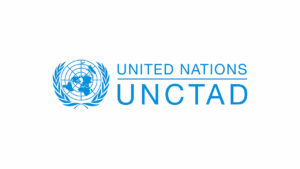THE foreign direct investment (FDI) market will be beset by risk aversion in light of the war between Ukraine and Russia, the United Nations Conference on Trade and Development (UNCTAD) said.
UNCTAD said in its World Investment Report, carrying the title “International Tax Reforms and Sustainable Investment,” that developing countries need help from the international community as FDI flows dry up.
In 2021, the report said global FDI flows improved 64% to $1.58 trillion, driven by a surge in merger and acquisition (M&A) activity and an increase in international projects.
“UNCTAD foresees that the growth momentum of 2021 cannot be sustained and that global FDI flows in 2022 will likely move on a downward trajectory, at best remaining flat. However, even if flows should remain relatively stable in value terms, new project activity is likely to suffer more from investor uncertainty,” the report said.
“The need for investment in productive capacity, in the Sustainable Development Goals (SDGs) and in climate change mitigation and adaptation is enormous. Current investment trends in these areas are not unanimously positive. It is important that we act now. Even though countries face very alarming immediate problems stemming from the cost-of-living crisis, it is important we are able to invest in the long term,” UNCTAD Secretary-General Rebeca Grynspan said.
UNCTAD said that the business and investment climate has changed due to the war, which caused food and fuel prices to rise and dried up financing.
“Signs of weakness are already emerging this year. Preliminary data for the first quarter shows greenfield project announcements down 21% globally, cross-border M&A activity down 13% and international project finance deals down 4%,” UNCTAD said.
“Asia, which receives 40% of global FDI, saw flows rise in 2021 for the third straight year to an all-time high of $619 billion. FDI in China grew 21% and in Southeast Asia by 44% but South Asia went the other way, falling 26% as flows to India shrank to $45 billion,” it added.
UNCTAD said international SDG investment rose 70% in 2021 to $371 billion.
“But most of the recovery growth came in renewable energy and energy efficiency, where project values reached more than three times the pre-pandemic level. While the 2021 recovery in value terms is positive, investment activity in most SDG-related sectors in developing economies, as measured by project numbers, remained below pre-pandemic levels,” the report said.
UNCTAD said that the proposed minimum tax of 15% on the foreign profits of the largest multinational enterprises planned for 2023 or 2024 will have major implications for international investment and investment policy.
In October, more than 130 countries decided to implement a corporate tax rate of at least 15% to ensure that big companies pay a fairer share of tax.
“While the tax reforms are going to increase revenue collection for developing countries, from an investment attraction perspective they entail both opportunities and challenges,” Ms. Grynspan said.
“Developing countries face constraints in their responses to the reforms, because of a lack of technical capacity to deal with the complexity of the tax changes, and because of investment treaty commitments that could hinder effective fiscal policy action. The international community has the obligation to help,” she added. — Revin Mikhael D. Ochave
